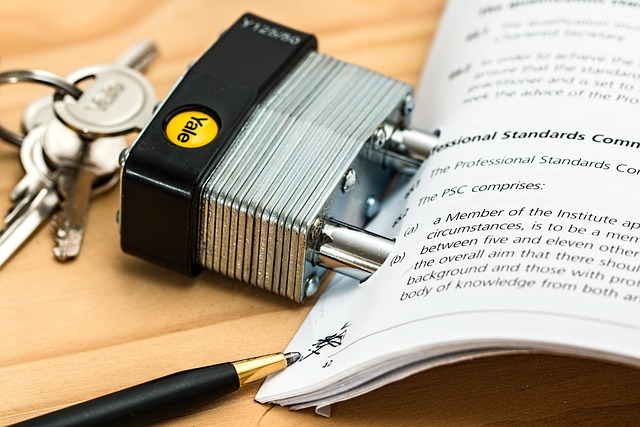Preserving the original tone in translating UK historical documents is essential for cultural continuity and historical accuracy. Specialized UK Historical Documents Translation Services expertly bridge the gap between past and present, capturing archaic terms, historical context, and literary devices. Through rigorous research, linguistic expertise, and multi-stage QA processes, these services ensure translated texts remain faithful to their historical intent while adapting to modern readers.
In the realm of translation services, especially when dealing with UK historical documents, maintaining original tone is paramount. This article delves into the critical importance of tone consistency in translation, highlighting challenges unique to UK historical texts and offering practical strategies from a translator’s perspective. We explore the role of cultural sensitivity and contextual awareness, emphasizing quality assurance checks for authentic translations that accurately preserve the essence of the source material. Discover how professional translation services navigate this delicate process.
- Understanding the Importance of Tone Consistency in Translation
- Challenges in Translating UK Historical Documents
- Strategies to Maintain Original Tone: A Translator's Perspective
- The Role of Cultural Sensitivity and Contextual Awareness
- Quality Assurance Checks for Accurate and Authentic Translations
Understanding the Importance of Tone Consistency in Translation

In the realm of translation, especially when dealing with sensitive historical texts, maintaining original tone is paramount. The nuances and emotional echoes embedded within UK Historical Documents require a meticulous approach to ensure their integrity is preserved across languages. Tone consistency is not merely an aesthetic choice; it’s a bridge between cultures, ensuring that the document’s intended meaning, subtleties, and even its period-specific sentiments resonate authentically with readers in different linguistic landscapes.
For example, a UK Historical Documents Translation Service must capture not just the literal meaning of words but also the historical context, cultural references, and literary devices employed by the original author. Failing to maintain tone consistency could result in losing the document’s emotional impact, its ability to provoke reflection or evoke a particular response from readers—a significant shortcoming when translating texts that are as much about history and heritage as they are about language.
Challenges in Translating UK Historical Documents

Translating UK historical documents presents a unique set of challenges, especially when aiming to maintain the original tone and meaning. These documents, often handwritten or typewritten, contain nuances and idiomatic expressions that are deeply rooted in the English language’s rich history and cultural context. Capturing these subtleties accurately is crucial for preserving the integrity of the historical record.
One significant hurdle is the evolution of language over time. Many UK historical documents date back centuries, using vocabulary and phrasing that have changed or become obsolete. Professional translation services for these documents require a deep understanding of historical context and linguistic shifts to ensure the modern translation remains faithful to the original intent. This often involves extensive research and consultation with linguists and historians to decipher and translate archaic terms accurately.
Strategies to Maintain Original Tone: A Translator's Perspective

Maintaining original tone in translations, especially for UK historical documents, is a delicate art that requires deep cultural understanding and linguistic proficiency. As a translator, one must appreciate the subtleties of language, idiomatic expressions, and contextual nuances to convey the intended meaning accurately while preserving the author’s voice. This involves more than just word-for-word substitution; it entails capturing the essence, tone, and style of the original text.
For UK historical documents, which often carry rich cultural and linguistic heritage, translators must familiarize themselves with period-specific terminology, literary devices, and even historical references. This might involve extensive research to ensure that the translated document not only makes sense in its target language but also resonates authentically with readers familiar with the source text’s context. Services specializing in UK historical documents translation often employ experienced linguists who can navigate these complexities, ensuring that the tone and style remain consistent across languages while adhering to historical accuracy.
The Role of Cultural Sensitivity and Contextual Awareness

The role of cultural sensitivity and contextual awareness in translation cannot be overstated, especially when it comes to UK historical documents. Each culture carries its own unique nuances, idioms, and customs that need to be understood and accurately represented during translation. This is particularly important for historical texts, where the language used may have evolved significantly over time. For instance, a phrase that was commonly used in the past might hold different connotations or even become obsolete today. A skilled translator not only understands the source text’s original intent but also adapts it to reflect contemporary linguistic standards while preserving the cultural context.
UK Historical Documents Translation Services must therefore be adept at navigating these complexities. They should possess a deep understanding of historical periods, social norms, and cultural references specific to the UK. This knowledge enables them to make informed decisions about word choices, idiomatic expressions, and literary devices, ensuring that the translated text resonates with modern readers while remaining faithful to its historical roots.
Quality Assurance Checks for Accurate and Authentic Translations

Maintaining authenticity and accuracy is paramount when translating historical documents, especially those from the UK with their unique linguistic nuances. Quality Assurance (QA) checks are a critical step in ensuring these translations meet the highest standards. Professional translation services employ rigorous QA protocols to guarantee the integrity of the original content.
These processes involve multiple stages of review by expert translators and editors who scrutinize every aspect, from grammatical structure to idiomatic expressions. They cross-reference terms against established glossaries specific to UK historical documentation, ensuring consistency across translations. Advanced tools, such as machine translation memory and term bases, aid in maintaining coherence, while human oversight prevents errors and preserves the original tone.
In navigating the intricate world of UK historical documents translation services, maintaining tone consistency is paramount. By understanding the challenges unique to this domain, such as capturing nuanced language and cultural context, translators can employ effective strategies like contextual awareness and quality assurance checks. These methods ensure that the translated works remain true to the original intent, preserving the historical voice while bridging cultural gaps. Thus, through a combination of skill and diligence, professional translators can deliver authentic translations that do justice to UK’s rich historical tapestry.
